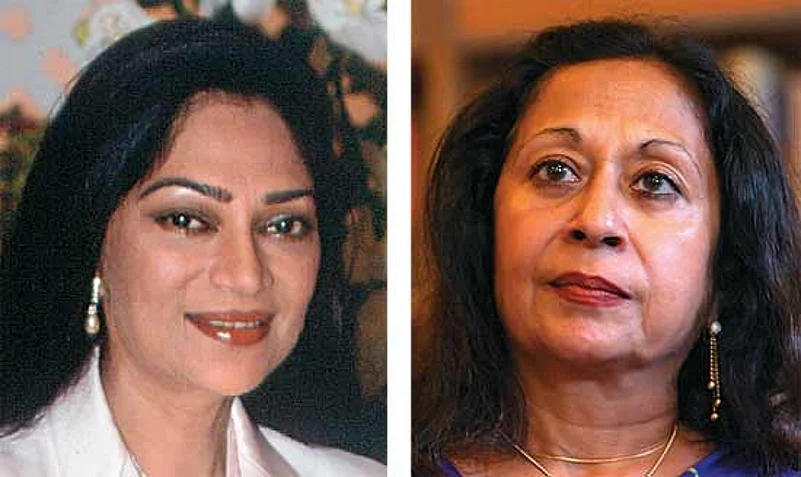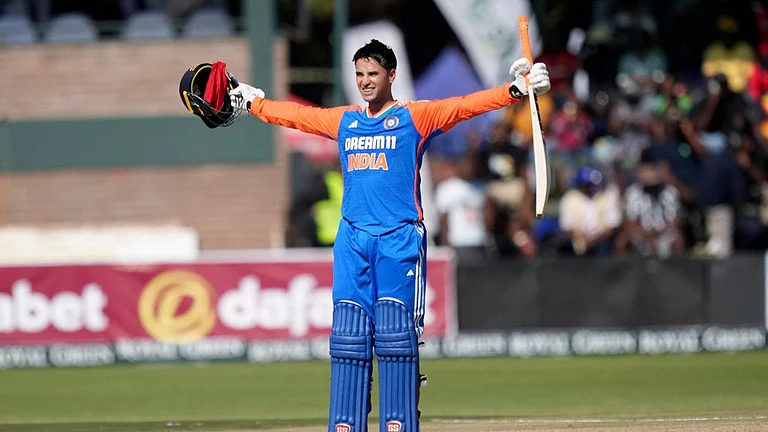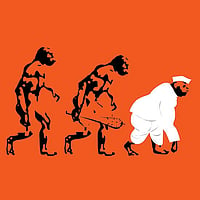“You know what’s the difference between Delhi and Lahore?” said Salman Taseer, as he stood on the terrace of a glittering dinner party. “They are the cars parked on the street below! Back home, there would have been rows of BMWs, Land Cruisers, but you still have your Marutis and Ambassadors,” he laughed. This was the early 1990s, the last days of pre-liberalised India, but the irony was not lost on Salman, who was acutely aware of his inheritance, of a nation carved out by powerful ruling Muslim zamindars and cigar-smoking gentry, while here was India, obstinately upholding democracy and self-sufficiency, not needing the status symbol of an imported car.
However, on every visit to Delhi or Mumbai, which was about once every five years since the ’90s, Salman would never fail to be astonished with the moving picture of modern India—of openness, forwardness, inclusiveness, and its commitment to freedom and survival. He instantly warmed up to Delhi’s swanky crystal-crusted drawing rooms but never failed to point out to questioning friends the extravagant and splashy Lahore and Karachi parties—the unmatched hyper excesses of dancing girls, overpriced Scotch and wines, and bejewelled socialites. Yet, he would say, as he met feisty women who had walked out of bad marriages, or live-in relationships, “This would never happen even in privileged Pakistan.”
Ironically, his first taste of the fascinating drama of New India came with a torrid love affair in Delhi in 1980. He had just written an acclaimed book, Bhutto: A Political Biography—on his late political leader, Zulfiqar Ali Bhutto, who was hanged by the military dictator Zia-ul-Haq—and he arrived in Delhi for the first time as an adult, on a promotional tour. At a press meet, he met the journalist Tavleen Singh, and the two went headlong into a love affair that lasted through his week-long stay.
Salman returned to Lahore, to his wife and three children, only to discover that Tavleen was going to have a baby. It was easy for a brash Punjabi Muslim to carry along a consort, but it was a bold Tavleen who agreed to continue the relationship secretly for as long as they could.
The relationship did not last very long—even as the stopgap family moved from Delhi to London to Dubai—and after two years, they split. Were the reasons political or personal? Salman had fled to Dubai in the early ’80s, after being tortured in a dungeon in the historic Lahore Fort by the Zia regime, and was running two successful accountancy and management firms in the eye-popping Emirates.
The reason was there for all to see. Bollywood’s scandal sheets were feverishly writing about the very public love affair of its statuesque star, Simi Garewal, with a mystery Pakistani businessman in Dubai! In its typical lurid style, filmi hacks gave breathless reports of the stormy blow-ups and public confrontations between the trio, of love, infidelity and betrayal.
Salman was always bemused when asked if he had gone from radical renegade to heartbreaker playboy of the pleasure-seeking ’80s, but he was integral to the jet-set world of the new enterprising sheikhs. The Taseer-Simi Garewal romance was the stuff of the sheikhdom joyride in Dubai and Sharjah, the decade of consuming cricket, when the men in pyjamas played for merchant Arabs, betting cartels, mafia dons and businessmen. It brought the deadly fix of glamour, sport and business, libidinous partying and playing. As one socialite recalls, “It was intoxicating.”
She remembers Salman transfixed by an exquisite Simi who was both fascinating and foxy, with her Swiss finishing school upbringing and her Bollywood affectation. The long-distance affair lasted for a little longer than a year until Salman met his present wife, Amna, a relative of the Bhuttos, and proposed to her.
His frolic with India became more business-like in the later decade when on his return to Pakistan in the ’90s, he set up several business ventures, from telecom, media, internet and cable networks to luxury hotel, department stores and a successful audit firm. He visited India for collaborations with media networks like Zee, or for advisory meetings with luxury hoteliers. His appointment as Punjab governor fired his radical zeal—he emphasised on education and literacy among girls, lavishing aid, much to the disgust of the orthodoxy. He longed for a stable Pakistan, with educated, skilled innovators, rather than the ‘call-centre purgatory we have today’, he had always lamented.

























